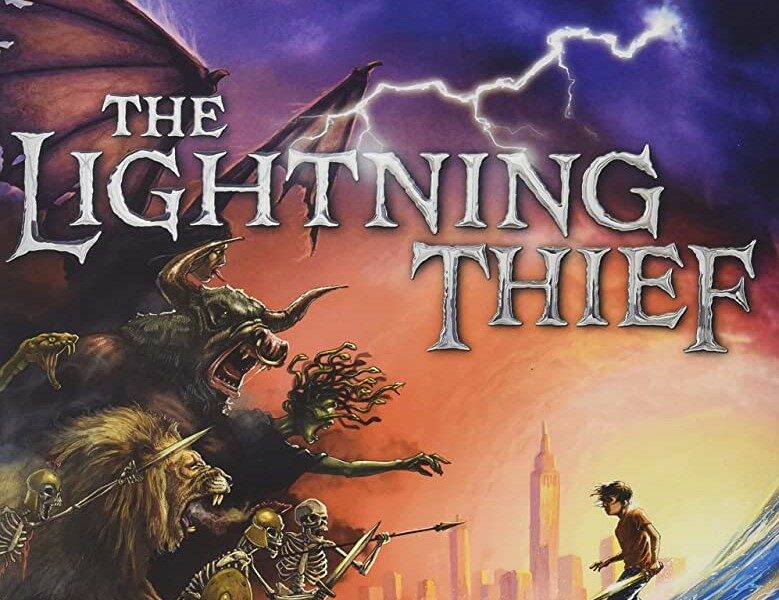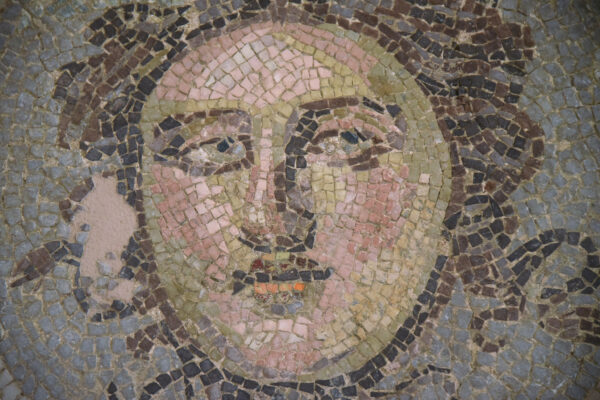
This post was written by student Bailey Evans, as part of her Spring 2023 Honors Project in CLAS-C 321 Classical Cultures and Myth in Theater and Film. More about Bailey at the end of the post.
Stories don’t just disappear as time progresses. In fact, they can become even more well known. There are many great examples of how creativity is constantly persevering, such as the sheer amount of Shakespeare’s plays that have been retold into teen chick flicks, my absolute favorite being 10 Things I Hate About You that was created off of the back of his sixteenth century play, The Taming of the Shrew.
However, Shakespeare isn’t the only olden days writer to still have well known content in the modern age. Some of the most notable and memorable stories come from the classical world.
I feel like every student my age experienced that life changing moment in middle school where they went on an English class trip and were expected to find something to read, and as if led by the light of some deity found their way to the shelf that housed Percy Jackson and the Olympians. A strong introduction into the world of mythology.
Rick Riordan’s Percy Jackson series paved the way for students like me to figure out just how much they love Greek and Roman mythology.
That book series, and the subsequent series that continue to be published to this day, includes an array of mythological figures in a modern context. The main characters are children that the Greek gods and goddesses had with mortals, which is definitely something that checks out with mythology.
The titular character is the son of Poseidon. A son that Poseidon had amidst an agreement between himself, Zeus, and Hades that they would not have any children, which based on any classical work that features Zeus, was bound to fail.
“I may have some fun with the mythology by changing the environment to modern day, but the structure of the myths, the monsters, the relationships of the gods – none of that is made up.” ~Rick Riordan
Riordan’s beloved series takes these famous (and sometimes infamous) figures from the classical world and reworks them to fit his own narrative. This opened the world of myth to countless youths, and I can only speak for myself when I say that his works also led me onto my future college education.
Modern interpretations of myth will always alter the ‘originals’ in some way. There’s no fun in rereading the same tales over and over and over again (Not something I, a chronic re-reader, actually believe, but I have been forced to accept that not everyone likes to overly consume the same media constantly).
And anyways, reworking mythology to fit your own narrative has been around almost as long as the stories themselves have been. For example, in my Classical Cultures and Drama course that I am taking this semester, we discussed just what it means to be considered a myth versus a version of a myth.
There are set characters and overall ideas that are the basis for a myth. These are often shared through word of mouth, but when a writer takes those characters and actually writes down a piece of text that features them, that becomes a particular version of the original myth.
Homer’s classic epic poem, The Odyssey, and Madeline Miller’s modern reimagining of said poem, Circe, could both be considered versions of the myth. Even as time progresses and changes, the world still wants the chance to rework these classic stories and make them their own.
“I was inspired by the themes of the Odyssey, which is, among other things, the story of a weary man yearning for home. Circe too yearns for home. […] She has to discover that home, and carve it out for herself, in defiance of a world that is hostile to her.” ~Madeline Miller
Miller fell in love and studied the classical world and chose to write her own versions of these stories that she was so passionate about while focusing on some of the figures that didn’t have as much of their own voice in previous versions.
She wrote The Song of Achilles, an explicitly queer (very distant) reimagining of The Iliad from the perspective of Patroclus, and as previously mentioned she wrote Circe, which took a villainous character from The Odyssey and gave her her own story and autonomy.
I feel as though there is a part of academia that wants to look down on these more modern adaptations and retellings of classical works, but I believe that they should be celebrated.
The world is an ever-changing place, so why shouldn’t stories that we love change with us. This isn’t to say that the older versions shouldn’t be valued and discussed, because they are the defining stories that led us to where we are now. I mean where else could I read about a woman having sex with a god disguised as a swan and laying multiple eggs as a result other than in a classical studies course.
But I digress.
Despite how some of these versions of mythology are so distant from the source material that they appear as almost completely separated works, I think they are still important for modern readers. They can take these historical figures and give readers characters to view themselves in.
Mythology has always been a defining part of literature. Writers have always included allusions to the classical world in their works because the myths are often something that people can understand and enjoy.
Mary Wroth, a poet from the fifteenth and sixteenth centuries, made many allusions to mythology for a great deal of reasons. In one poem debating the merits of falling in love, Wroth writes about Ariadne and Theseus in the Labyrinth, and in another she writes about the goddess, Artemis.
All throughout time, myth has been present.
As a student who has been absolutely enthralled in every classical studies course she’s taken, I will always have an appreciation and respect for people who can read these same classical plays that I have and find in themselves the creativity to rework the story and make it their own.
Modernity hasn’t failed us; it has only changed us.
“Even meaning and destiny themselves can be read in ordinary things, if you have the gift.” ~ Stephen Fry, “Mythos: The Greek Myths Retold”
Mythology is defined by creativity, and I think as more retellings and re-imaginings are brought into the world, the more humanity will value what the classical world has gifted us.
Bailey Evans is a junior majoring in English with a concentration in literature, and minoring in Classical Studies, Art History, and Creative Writing. She has a deep love for how Classical Studies provides a connection between the past and the present, especially through literature and art. She wrote this piece as part of her Honors Project for CLAS-C 321 Classical Cultures and Myth in Theater and Film. If you are interested in doing an honors project in a Classical Studies course, or in earning a Classical Studies Minor, please reach out to the Program Director Dr. Elizabeth Thill.


